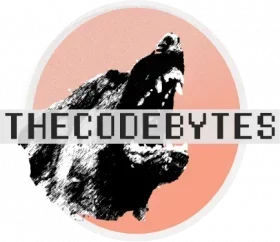If you stumbled upon this article looking for the best programming language for coding interviews, you’re in luck! There is one clear winner to choose when it comes to writing your coding interviews. Python!
Python is the best programming language for coding interviews for many reasons. Python is simple to learn, both easy to read and write, and results in fewer syntactical errors.
Below we are going to dive into why Python is so great for coding interviews and then outline some other great and not-so-great options that you should know about.
1. Python Is Simple To Learn
One reason why Python is so great for coding interviews is because of its simplicity. If you have programming experience in any other language, Python will be very easy to pick it. Especially if you have coded in C, C++, or another object-oriented programming language.
If you haven’t coded before, Python is also a great first choice.
Choosing a language that is easy to use syntactically is important. The algorithms and data structure challenges that will be provided will be challenging enough. You don’t want to make your life harder than it needs to be by choosing a difficult language to use.
I first learned Python a few years back when I took an online course in computer science fundamentals and was able to quickly pick up the language in about a week. If I were to start over again today, I could probably learn it in a day. So don’t let the learning curve stop you from picking up Python! It is always great to have multiple languages on your resume anyway.
If you are new to Python and need a learning resource, this is a great place to start.
2. Python Is Easy To Read & Write
The second reason Python is such a great programming language for coding interviews is that it is very easy to read and write. In fact, a lot of Python code looks like pseudo-code.
The fact that Python is easy to write is beneficial as it allows you to write code cleaner and faster. Since your interviews will be timed, you don’t want to waste time writing and getting tripped up over code that doesn’t directly relate to the problem at hand.
Since most coding interviews are written on a whiteboard or a word doc, you’d be surprised how easy it would be to get tripped up over syntax. Thank god for IDE’s!
It is also important that Python is easy to read. Not for you, but for your interviewer. If you are lucky enough to be able to choose your programming language then your interviewer might not be familiar with the language you choose.
If you choose Python, there is a very good chance your interviewer will at least be minimally familiar with Python. Even if they are not, they will be able to follow along and understand your thought process.
If your interviewer is lost, there is no way for them to help you out or give hints. It’s best to stick with a language that’s simple and easy to understand.
3. Python Is Not Error-Prone
You when you write illegible code during the interview.
Oh syntactical errors, you have to love them.
It’s not uncommon for a C programmer to rip their hair out trying to figure out a bug just to realize they missed a semi-colon. Good thing Python doesn’t use semi-colons!
But for real, the fact that Python is littered with syntactic sugar is a huge benefit because you can feel more confident that the code you write in a coding interview would actually compile if you tried to. Which can score you big points in a coding interview.
Other Good Programming Languages For Coding Interviews
Although Python is a great programming language for coding interviews, it is far from the only option. In my article, best programming languages to learn data structures and algorithms I broke down some of the best languages for learning data structures and algorithms.
Most of the languages in that list work well for a coding interview. Whether it’s JavaScript, Ruby, C#, Java, or any other higher-level language. I highly recommend programming in a language you know well.
In addition, this question can also depend highly on the role you are applying for. The best programming language for coding interviews as a frontend developer might be JavaScript, while a systems programmer might be C.
The Worst Programming Languages For Coding Interviews
The worst programming languages for coding interviews would be using a lower-level language or a functional programming language unless used in the role.
Lower-level languages take longer and are much harder to write and understand. Interviewers are testing your algorithm, data structures, and on-the-job knowledge. Not whether or not you can do it in the hardest or most obscure languages. So just don’t do it.
Functional programming languages are also a terrible choice. As I said above, if your interviewer has never seen the languages you use, they won’t be able to follow along and you likely won’t get the job. Now if they haven’t even seen the paradigm? That’s a big no-no. I am a big fan of functional programming, just not in interviews! Unless, of course, it is used in the job.
Wrapping Up
So that’s pretty much it! The best programming language for coding interviews. If you are studying for your coding interviews, check out the best languages to study them with here. If you are new to web development and want a resource that teaches you everything you need to know, check out my guide here.
